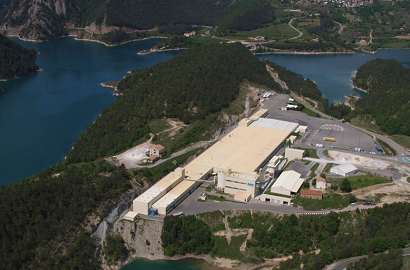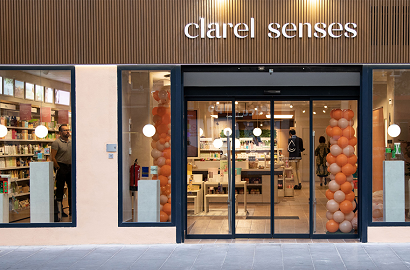Knauf builds biomass plant at Lérida factory

With a capacity of 7.5 megawatts peak, it is a key facility in its decarbonisation plan
Building materials manufacturer Knauf has announced the forthcoming start-up of a biomass plant at its factory in Guixes (Lérida). The new facility, a key part of its decarbonisation plan, will have a capacity of 7.5 megawatts peak, which will allow it to replace part of the fossil energy it consumes for its operation with renewable energy.
The biomass plant, which is expected to be operational in December 2024, will significantly reduce carbon emissions associated with the production of building materials. This is a new step towards reducing the carbon footprint of a company that has set the year 2045 as the deadline for reaching the goal of zero emissions.
One of the most modern in Europe
When it was inaugurated in 1991, the Knauf plasterboard factory in Guixes became one of the most modern in Europe. It has a 350-metre long production line and a speed of 66 linear metres per minute, with which it has achieved an output of 30 million square metres per year.
The loading and unloading of up to 100 trucks is handled daily from its warehouse. It has a surface area of 1,500 square metres for the storage of raw materials, 2,800 for accessories and another 9,000 for finished products, as well as a 14,000-square metre parking area for trucks.
New jobs
On its LinkedIn profile, the company has shared information from La Vanguardia that anticipates the creation of two hundred new jobs at the future biomass plant.
According to this information, Knauf has agreed that the supply of forest biomass for the plant will come from a nearby market, no more than 150 kilometres away from the facilities. Emission reductions will be around 35%.
Energy efficiency
In 2015, the Guixes plant underwent a technological change in its manufacturing system, with the replacement of various pieces of equipment to improve its energy efficiency and significantly reduce the waste generated during the production processes. The 3.33-million-euro investment received a grant of around 687,000 euros from the Spanish Institute for Energy Diversification and Saving (IDAE), co-financed by the European Union through the ERDF Smart Growth Operational Programme 2014-2020.
Since then, the company has undertaken other projects at the Catalan plant, such as a solar PV plant which, according to La Vanguardia, will produce over 500,000 kilowatt hours per year when it comes into operation. It also plans actions to reduce water consumption by 2% and cut emissions by 50% by 2032.
Photo: Knauf




